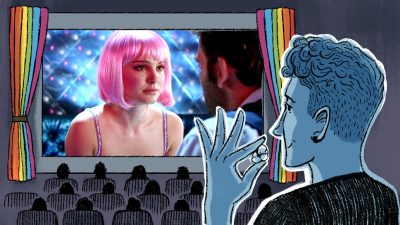Columns Backyard Politics
Giving Myself to My Garden and Keeping Enough for Me
The thing my mom told me to do—“Save twenty percent for yourself. Never give one hundred percent to anyone.”—was not selfish after all. Not when thinking about my own survival.
This is Backyard Politics, a column by Christine Hyung-Oak Lee that sees the world through the lens of urban farming and agriculture.
Let me tell you a story about this garden—before it became mine.
I’ve lived in my house for over eighteen years. For the first twelve years, I didn’t step out into the backyard at all. Yes, the same backyard in which I would venture every few hours if I had my druthers, where I roam for inspiration, and for which I spend all winter poring over seed catalogues—was, at first, not something for which I cared.
I had no interest in it because I had no say in its direction, no say in its contents. Had I gardened then, it would have been as servant to its design and designer, my then-husband, who I shall call Adam.
So Adam, who wanted a garden, but wasn’t a gardener himself, managed the yard with its roses, boxwood hedges, rhododendrons, camellias, and bougainvillea. The plants eventually languished despite regular watering and full sun. I could see from the window the tops of the trees losing leaves. One year, the oaks fell—which, while a sad event, gave me relief, because I am severely allergic to oak pollen. The following year, he asked me to come out and tell him what was going on, to see what was killing the plants.
He knew, despite my never venturing into the backyard, that I had once upon a time been a friend to plants. Because he’d seen me reading books about horticulture and farming. Because I’d told him stories about gardening with my father—complete with good-natured tales of competitive vegetable growing, from Korean hot chili peppers to Japanese eggplants to Korean squash.
I put on my shoes and walked outside, down the stairs.
With my hands on my hips, I glanced at the leafless fuschia. The yellowed and browning daphne. The Queen Elizabeth hybrid roses eking out one or two flowers where once there had been dozens. The boxwood, stalwart and holding on, but sporting no new leaves. The stump that was once the oak tree, sprouting miniature turkey tail polypores.
I also saw exposed roots peeking out from clay soil.
“The topsoil is gone,” I said.
“What?”
“The topsoil is gone. There’s no good soil. The landscaper’s been blowing away all the mulch and topsoil with his leaf blower. And nothing’s been decomposing. So the soil is completely depleted.”
Inside, I felt grief. But I composed my words in a flat voice as if a doctor delivering bad news, not wanting my emotions to color someone else’s experience. I used to do that a lot back then.
“What do we do?”
Haul in compost. Haul in soil. Leave mulch and leaves to decompose.
“That’s a lot of work. A lot of time.”
It was. He asked the landscaper to bring in mulch, and left it at that. We didn’t do any more than that. The landscaper, in short order, blew that mulch away too. I don’t blame him; he was just following Adam’s mandate to keep the garden tidy and neat and clear of detritus. The garden went back to its struggling state.
One of us had not paid attention. The other of us did not know at what to look.
What had been a leafy, ornamental garden now looked bare. Soil can erode over time. And it becomes depleted with each season, sometimes slowly but surely—sometimes dramatically. It can become dust. It happens inch by inch, season by season.
Building soil health is as incremental.
*
I like to think that I nurtured my marriage. And I did—I gave up almost everything I was and almost everything I did to give to my relationship. Fuck, I gave up everything I was to give to my relationship. Fucking shit, I gave up everything to my relationship.
I loved him more than I loved myself.
My mother told me soon after I was married, “Save twenty percent for yourself. You should never give one hundred percent to anyone.”
“That’s the most selfish shit I’ve ever heard, Mom.” That was my response. My mom is cool with me swearing. She is not cool with my having given one hundred percent of myself to a man.
Here’s another story. I was driving my father around with a driver’s permit when I was fifteen years old. And I remember letting a few cars in ahead of me on the freeway.
He started cursing. My father cursed a lot when he was younger. He cursed about a lot of shit. He had a lot of shit to curse about. I let him finish.
“Why did you do that?” He said it in Korean. There were additional Korean curse words that don’t translate well to English. Pause; he really did curse in Korean. But he did say, “Why did you doing that?” in English. But I don’t want you making fun of his Konglish, and I don’t need someone non-Korean to speak Konglish, so I’ll leave it at that.
“I’m trying to be polite,” I said, “by letting them in ahead of me.”
He took a deep breath. He’d quit smoking by then. But he inhaled the air as if it were cigarette smoke. “You think—” he paused. “You think you’re being polite.” He sounded like a Quentin Tarantino gangster trying to assess stupidity and establish dominance all at once.
“Yes.” It was almost a question by this point. But my obstinate teenage self—she willed it a statement.
“What about—” he paused again, but this time what followed was staccato gunfire. “What about the people behind you? You think you’re being polite to them? Did you think about the people behind you? You think you’re being polite. You think you’re being generous. Hahahaha. Depends on who you ask! You. Are. Not. Polite. Never do that again to the people behind you.”
He fumed the rest of the ride home. My dad is a badass.
Fuck. He was right. His delivery sucked. But he was right. Being good to one person has to be good for others. So the thing my mom told me to do—to save some part of myself for myself—was not selfish after all. Not when thinking about my own survival.
“Save twenty percent for yourself. You should never give one hundred percent to anyone.” By the time I had a baby, nearly eighteen years after my mom told me to save myself, I had nothing left to give. I had been depleted. So my husband left, like a dried seed carried by the wind to more fertile ground.
Okay, that’s too forgiving and dramatic—humans are not seeds. Humans have minds and hearts and souls. My husband left, because he just didn’t want to be here, because he didn’t get what he wanted or needed from me, anymore. There was no discussion. No room even, to beg. There is that. He did not give me the space to beg.
I like to think it wasn’t my fault. When my husband called from the place he shared with his girlfriend to tell me he was leaving me, he said one kind thing: He said I didn’t do anything wrong. That it wasn’t my fault.
But here’s the thing: I didn’t take care of myself, just like we didn’t take care of the soil and turned a blind eye to its erosion until all that was left was clay. So in not being wrong to him, I had done wrong to myself.
Soil is the foundation of growth. It is the basis from which plants derive most of their nutrition, without which a plant will not reach full potential. In addition to humus and water and air, soil contains minerals—the most essential of which are nitrogen, phosphorus, and potassium. Nitrogen ensures leaves are healthy. And phosphorus and potassium take care of stems and roots. They promote blossoms.
Other significant minerals include calcium, magnesium, and sulfur, all of which contribute to a plant’s health. Calcium helps build strong walls—and if a plant doesn’t have enough calcium, it will stunt nutrition elsewhere—like blossom end rot in tomatoes. Magnesium is key in photosynthesis—so if your plant is deficient in magnesium, the leaves will yellow between leaf veins, whereas a sulfur deficiency results in the yellowing of an entire leaf. These are the physical manifestations of deficient soil.
In hindsight, I should have seen. But I did not. I did not allow myself to see.
And no one could see—because Adam and I did not tell the truth about ourselves. We wove our own fairytale and basked in the glory of what people saw as a strong pairing. And in this telling, we became the characters in our stories. And we saw each other as characters instead of the people we were and are.
Does that sound too contrived? Let’s put it this way: He lied and I made up stories to cover up the lies. In the end, I wasn’t a young, blonde woman and he wasn’t a stalwart partner.
The lies made me sick. I wanted to tell everyone we lived paycheck to paycheck just like everyone else. I wanted to tell everyone that we weren’t having sex anymore. Instead, I worked an additional job to pay for his additional car. I let him grab my ass in public and let everyone think it went beyond that.
I wove a very tight(ly guarded) narrative. And did not tell anyone anything when it comes to Adam. I still do not say much about Adam. Few people know that he doesn’t pay child or spousal support. Or that for the first year, I often had to make a decision between buying diapers and buying food for myself, neglecting mortgage payments—not of choice, but the force of reality. That during this time, he bought a mansion for himself. That I learned the courts move too slow for someone so swift.
This piece is hard to write. It feels like a betrayal of him. Of our marriage. Which admittedly, does not even exist. But again, I have to choose myself.
There is a choice memoirists and essayists make when we write our lives; we must choose who we protect. When I wrote my memoir, I guarded Adam, telling myself that doing so was to protect my daughter—and painted him in a complimentary light. But I have reconsidered. I have reconsidered, because in revealing complications, I reclaim my lost self. This is who I am. These are all the emotions I feel. This is my story, not his. This is the complex truth my daughter should hear.
You do not have to deplete yourself to be good.
Deficiency is clear. When Adam left me, I had bald patches on my scalp. My hair had been falling out in clumps because I was malnutritioned from motherhood and depression. When my mother came to visit me five months postpartum, she saw me and said, “You look like a chemo patient.”
My hair is still growing back six years later. My nails were brittle. I was chilled, always wearing a down jacket because I was thin—I was at high school weight. Here’s the thing: I had an eating disorder in high school. I felt faint after walking three blocks.
You do not have to deplete yourself to be good. Soil is alive. That life is both visible and invisible. Soil moves with earthworms and smells like hot breath. It contains microbes—the mystery of which extends beyond this essay. Beyond that, it contains what I call magical elements—mycelium and things like lactic acid bacteria—what I like to call soil probiotics, things that make the soil more fertile, make it so plants can ingest the minerals more readily.
This is why fertilizer is not a complete solution, and only a component of the entire living foundation. There is an entire ecosystem in the soil that keeps things in balance, keeps things enriched, accessible, and thereby plants green and lush and fruitful.
I once ordered several cubic yards of topsoil. It looked like a large mound of powdered cocoa. As I began shoveling it to carry downhill into the garden, I noticed that it was devoid of life. I looked at it closely—it was evenly textured, evenly colored. It didn’t smell. It didn’t even smell like flour.
“This soil is weird,” I told my friend John.
“It’s sterilized. You can’t sell soil with diseases in it.” He shrugged as if to say, what can you do? It is what it is.
I was floored. This soil was dead.
I finished carrying it down. It took a few hours each day over a span of a few weeks to “finish carrying it down.” Building a thing is sometimes done by inches.
Then I sprayed it with lactic acid bacteria I’d cultured and I threw some chicken manure on it. Hoping to speed up its return to life.
In the years since starting my urban farm, I’ve spent every winter taking care of the soil. There are myriad ways to care for soil, just as there are myriad ways to parent.
I’ve done my research, looking up various ways to replenish earth and moving towards what feels best. Sheet mulching. No-till farming. Korean natural farming. Permaculture principles. Mostly things that imitate the cycle of nature. Partly because I am not going to be out there with power tools, rototilling the earth and breaking earthworms in half. I just can’t with that.
Because I do not till, I put down layers of nutrition to break down on their own, to give the soil both heft and tenderness. I give the soil compost. Leave the leaf litter atop it, so the leaf litter can break down into rich humus. Add compost. Add wood chips. In that decomposing soil are healthy microbes and all the things needed to give a plant and a garden life.
Sometimes, I’ll put my hand into the earth and discover mycelium running—mushrooms in process and roadmaps for nutrients. This happens in natural settings, like forests. And it is the tenet upon which permaculture farming is based. You help nature through its normal cycles.
I’ve found that the more work I do on supplementing, and in some cases remediating the soil, the more fruitful my garden’s outcome. It feels like thankless work, schlepping in wood chips and raking leaves. I spent one winter hauling six cubic yards of wood chips and then after that another six cubic yards of compost. Six cubic yards takes about as much space as a mid-size sedan.
Working in a garden results in a return. Always.
Part of tending soil means walking away and giving it time to break down leaves and vegetable peels and coffee grinds into nutritious topsoil. It is the gift of waiting—during which a garden forces me to tend to myself, to sit and read and write and sleep and eat.
I am fucking gardening my own life now. I am the gardener. It feels good to see the plants and fruits. This is because the ground beneath me is good. It is nutritious. The garden feeds me. I feed it in return. It’s winter now—and that’s what I’ve been doing between rainstorms; making sure the ground is fed as the trees sleep. And making sure I am fed, too.







